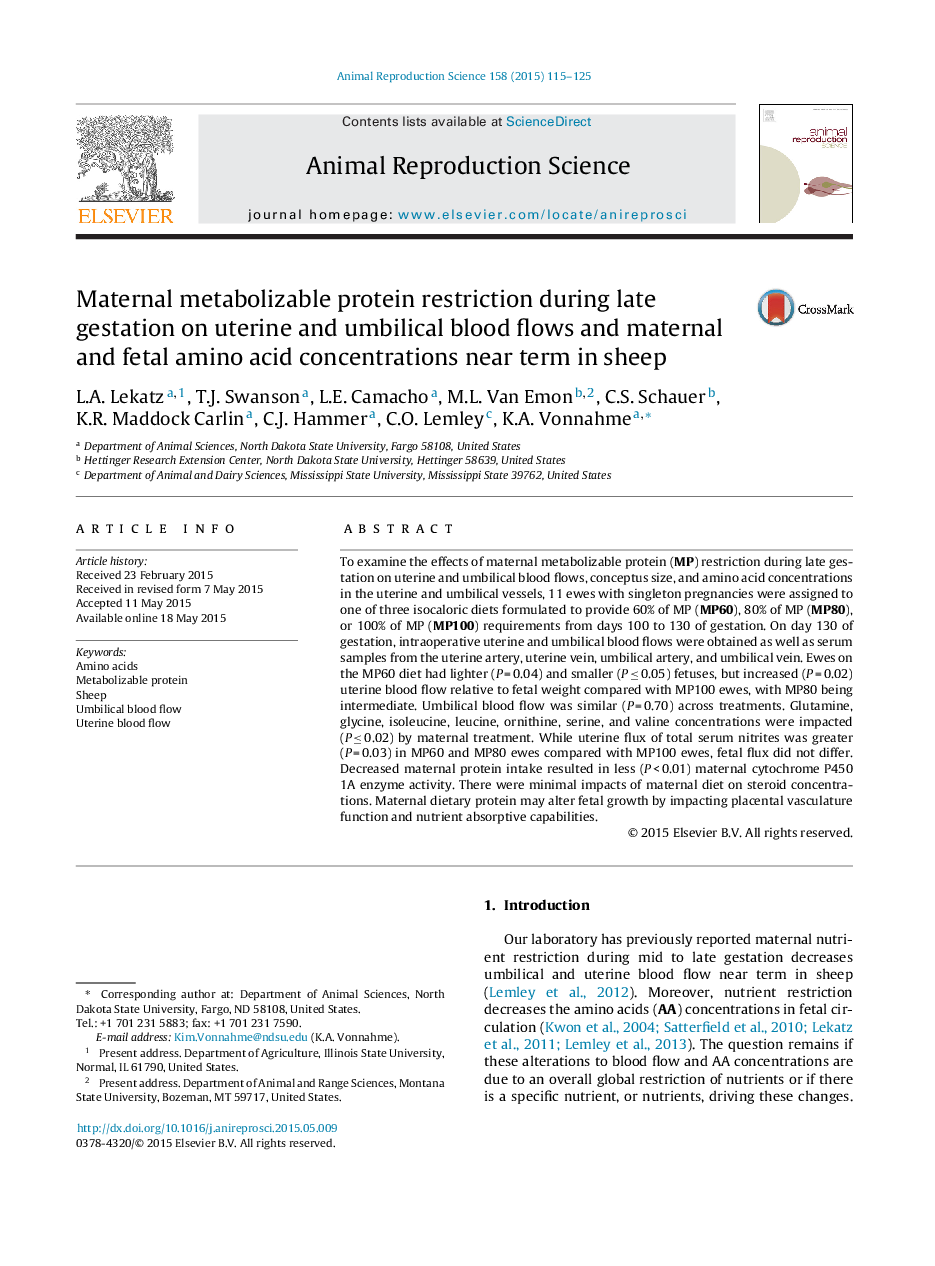| Article ID | Journal | Published Year | Pages | File Type |
|---|---|---|---|---|
| 2072668 | Animal Reproduction Science | 2015 | 11 Pages |
•Low protein during late gestation results in growth restricted fetuses in sheep.•Low protein during late gestation results in increased uterine blood flow in sheep.•Uteroplacental amino acid concentrations were altered by maternal protein levels.
To examine the effects of maternal metabolizable protein (MP) restriction during late gestation on uterine and umbilical blood flows, conceptus size, and amino acid concentrations in the uterine and umbilical vessels, 11 ewes with singleton pregnancies were assigned to one of three isocaloric diets formulated to provide 60% of MP (MP60), 80% of MP (MP80), or 100% of MP (MP100) requirements from days 100 to 130 of gestation. On day 130 of gestation, intraoperative uterine and umbilical blood flows were obtained as well as serum samples from the uterine artery, uterine vein, umbilical artery, and umbilical vein. Ewes on the MP60 diet had lighter (P = 0.04) and smaller (P ≤ 0.05) fetuses, but increased (P = 0.02) uterine blood flow relative to fetal weight compared with MP100 ewes, with MP80 being intermediate. Umbilical blood flow was similar (P = 0.70) across treatments. Glutamine, glycine, isoleucine, leucine, ornithine, serine, and valine concentrations were impacted (P ≤ 0.02) by maternal treatment. While uterine flux of total serum nitrites was greater (P = 0.03) in MP60 and MP80 ewes compared with MP100 ewes, fetal flux did not differ. Decreased maternal protein intake resulted in less (P < 0.01) maternal cytochrome P450 1A enzyme activity. There were minimal impacts of maternal diet on steroid concentrations. Maternal dietary protein may alter fetal growth by impacting placental vasculature function and nutrient absorptive capabilities.
